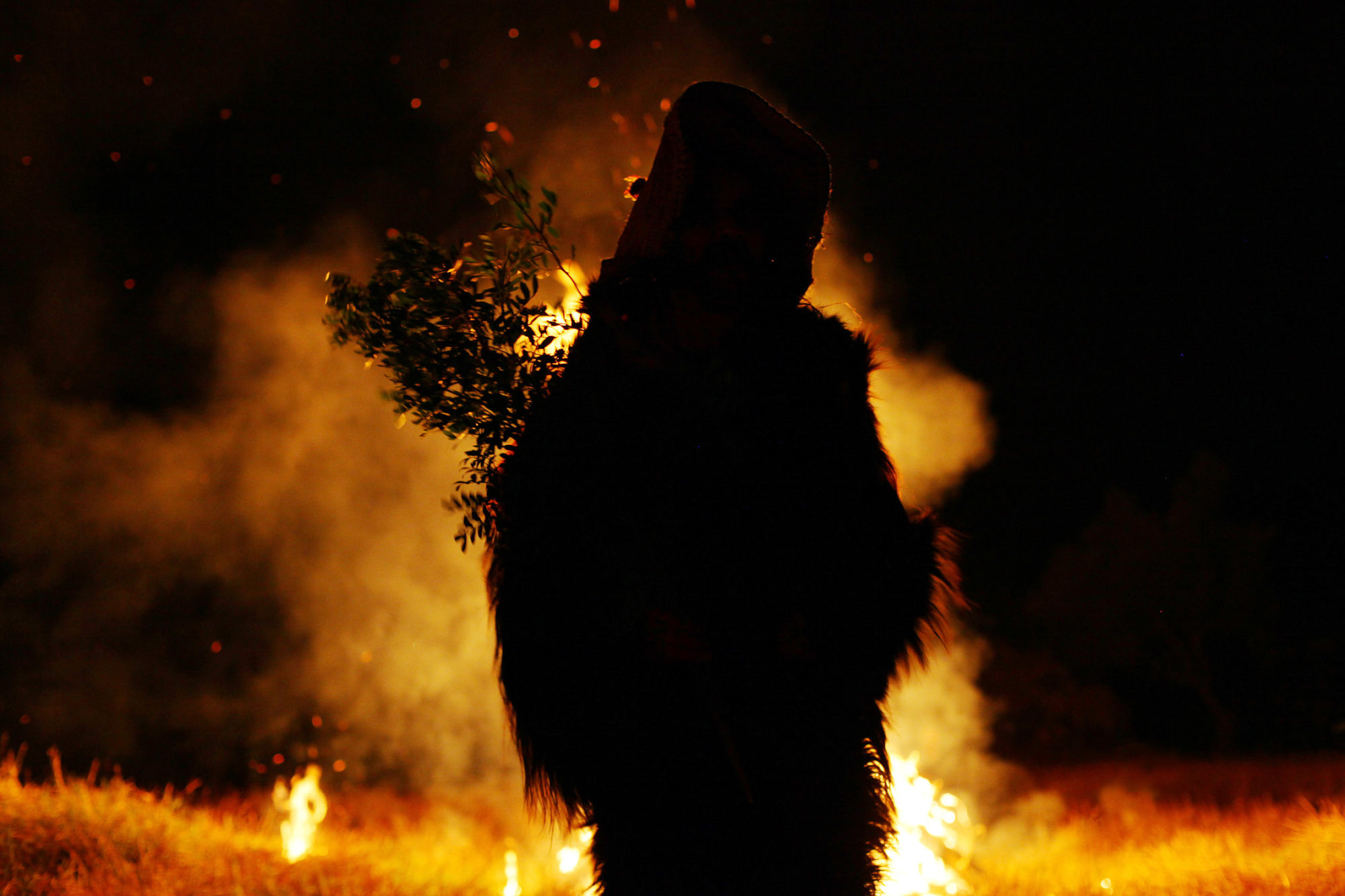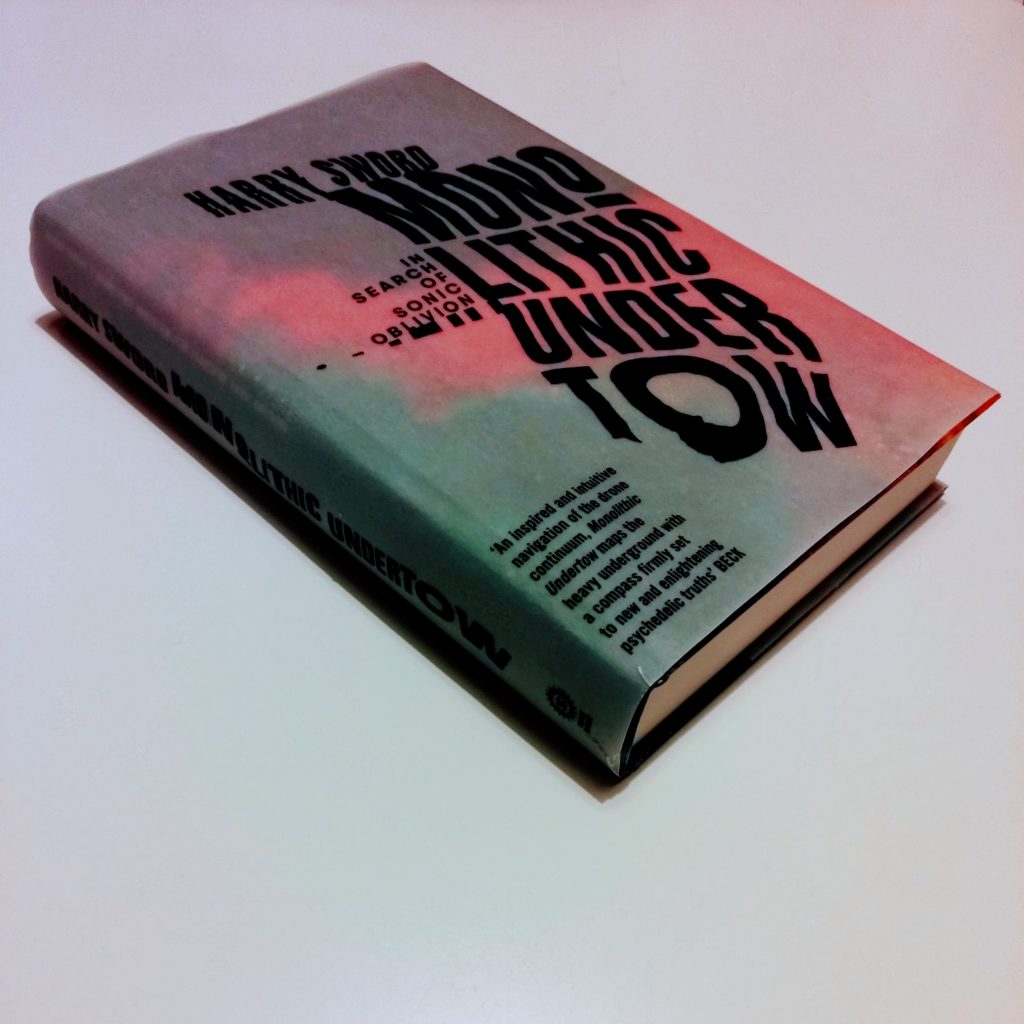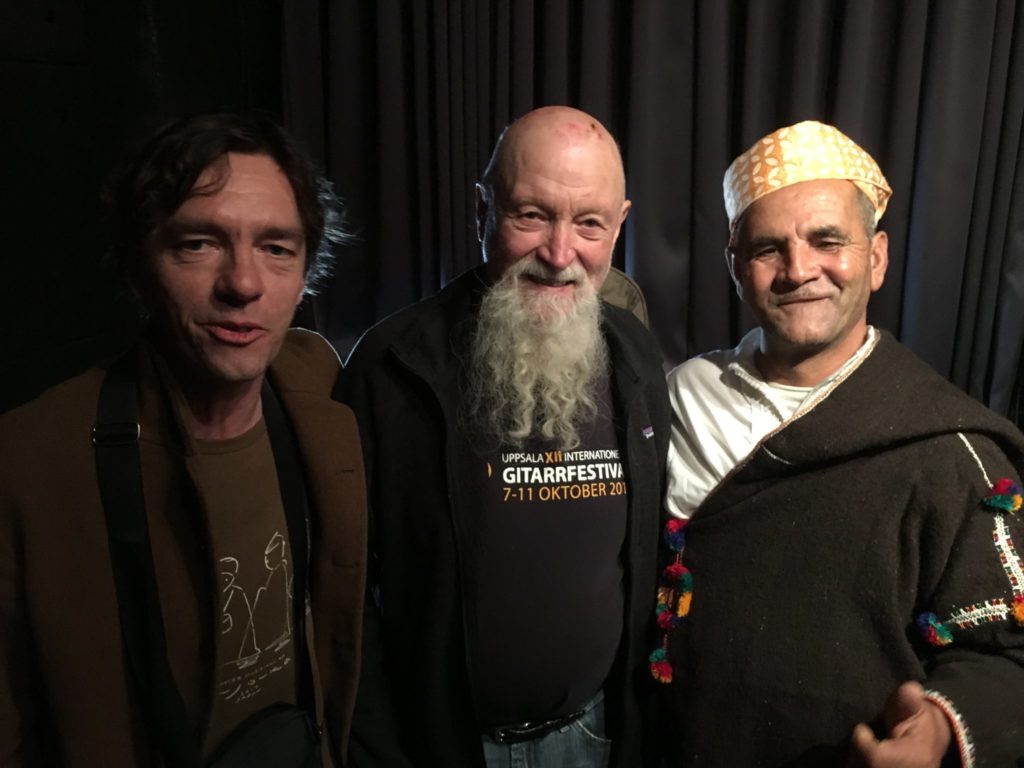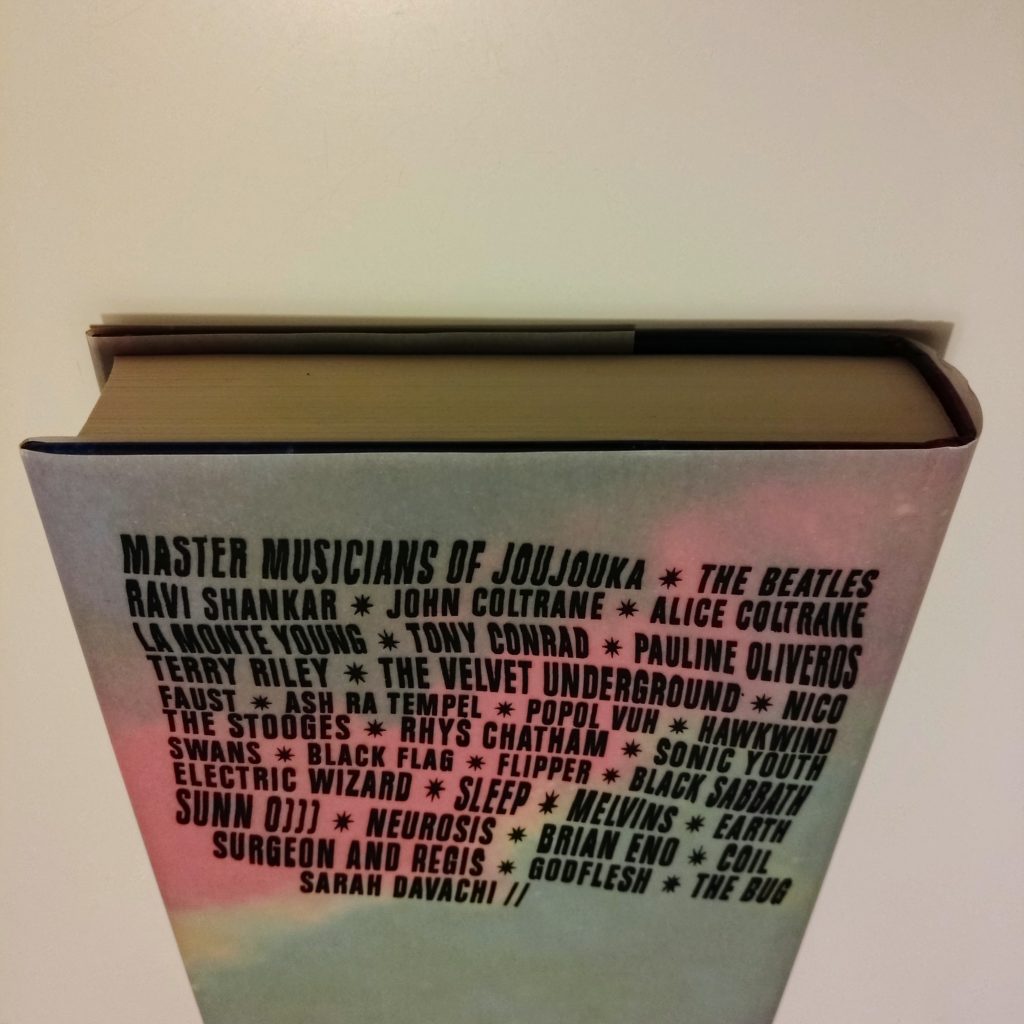
To mark 50 years since the release of Brian Jones Presents the Pipes of Pan at Joujouka an in-depth article examines the events that led to the recordings made by The Rolling Stones lead guitarist and founder in the village.
‘Brian Jones in Morocco & in the studio’ by David Holzer is featured in issue #55 of Ugly Things – available now.
The article looks at the circumstances of Jones’ life around the time of his trip to Morocco that included his visit to Joujouka and the legacy of the “talismanic” album five decades since it was originally released.

Brian Jones, who would have turned 79 today (28th February 1942 – 3rd July 1969), visited Morocco in August 1968, where he recorded the Master Musicians of Joujouka.
The tapes were later edited and mixed for what became the Brian Jones Presents the Pipes of Pan at Joujouka album released on Rolling Stones Records in 1971.
Holzer wrote: “Produced by Brian, the album was his attempt to promote the music to an audience outside Morocco.”
He added: “Brian Jones Presents… would never have happened if it wasn’t for him meeting Brion Gysin and his friend Mohamed Hamri in Tangier. Gysin contributed sleeve notes to the album. The cover features a painting of the Master Musicians by Hamri.
“According to Gysin, the most portentious moment of Brian’s trip to Joujouka was when a goat was led past him on its way to slaughter. Gysin later claimed that the goat was pure white and that Brian “leapt to his feet and said ‘That’s me!’””
The article includes new interviews with Master Musicians of Joujouka manager Frank Rynne and Rikki Stein, who lived in the village in the 1970s and organised the group’s 1980 tour of Europe.
Rynne suggests a hitherto unexamined theory that Jones may have employed cut-up editing techniques, as used by Brion Gysin and William S. Burroughs in their collaborations, in his mix of the recordings from Joujouka.
Rynne said: “No one’s ever spotted the fact that Brian took two sometimes three songs and layered them. People writing about the album have missed it because they have no clue what Joujouka music is. Listen to the women singing with flute and drum underneath them, that’s two songs playing at the same time. That’s why Brian deserves to have his name on the cover. He was making a cut-up of the music to recreate what he felt there.”
Dave Field, who designed the album artwork, is also interviewed, with additional insights from music writers Paul Trynka and Kris Needs.
Read Brian Jones in Morocco & in the studio published in Ugly Things
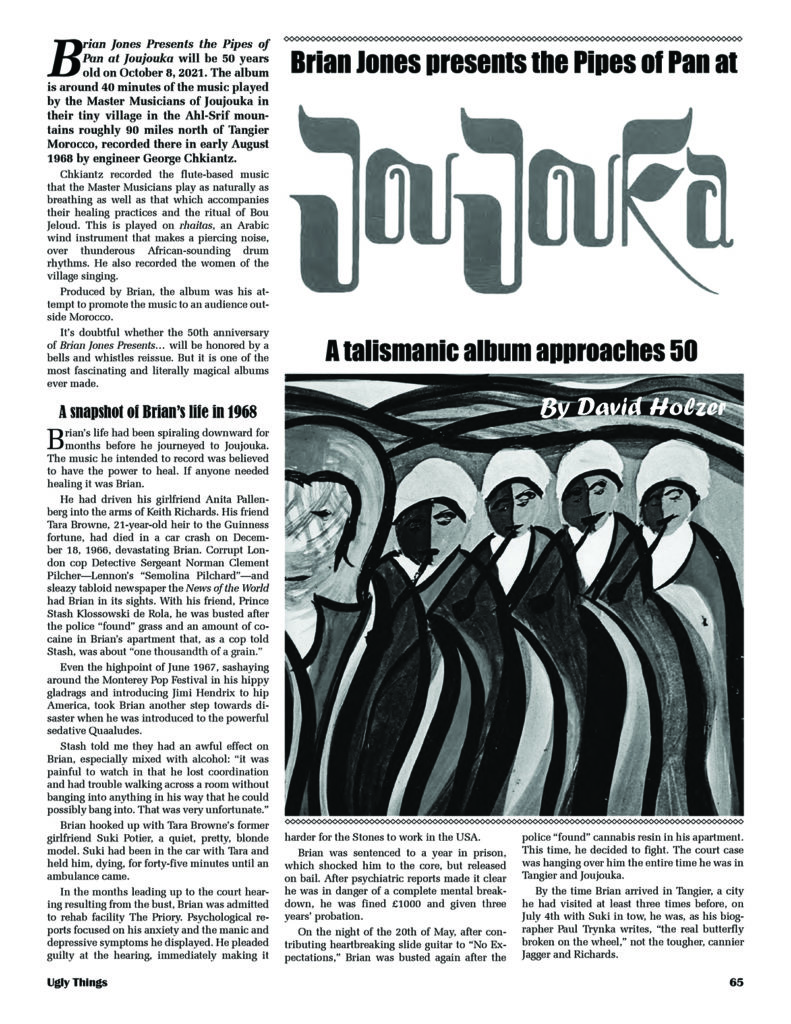
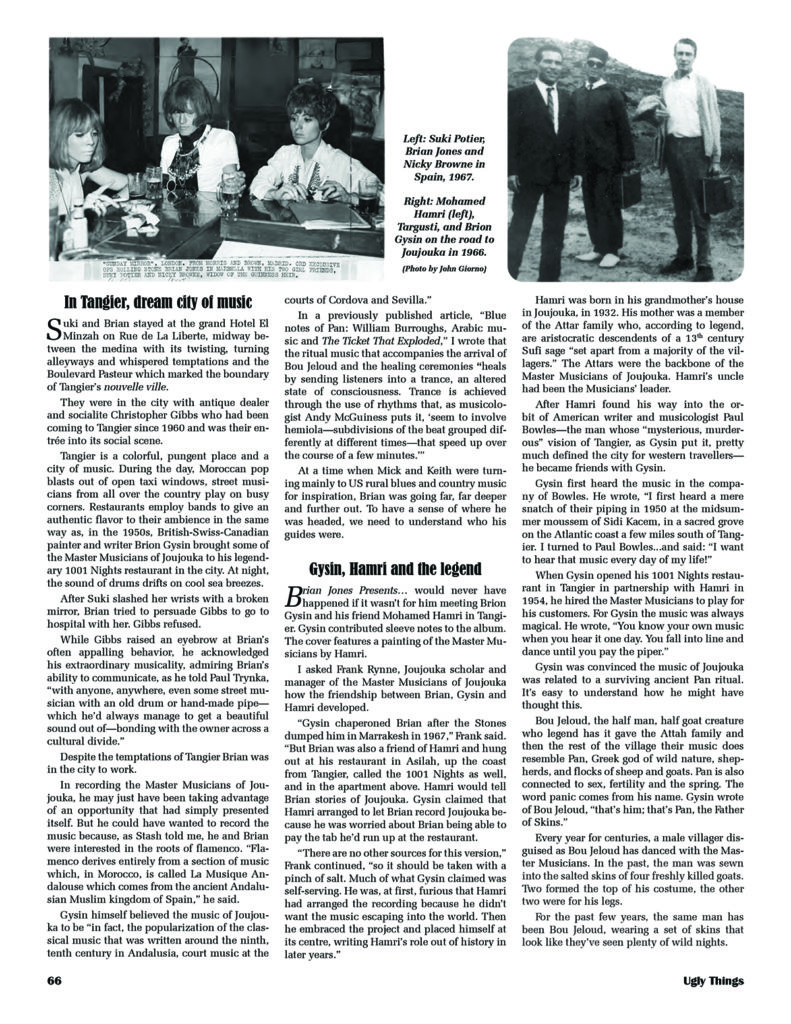
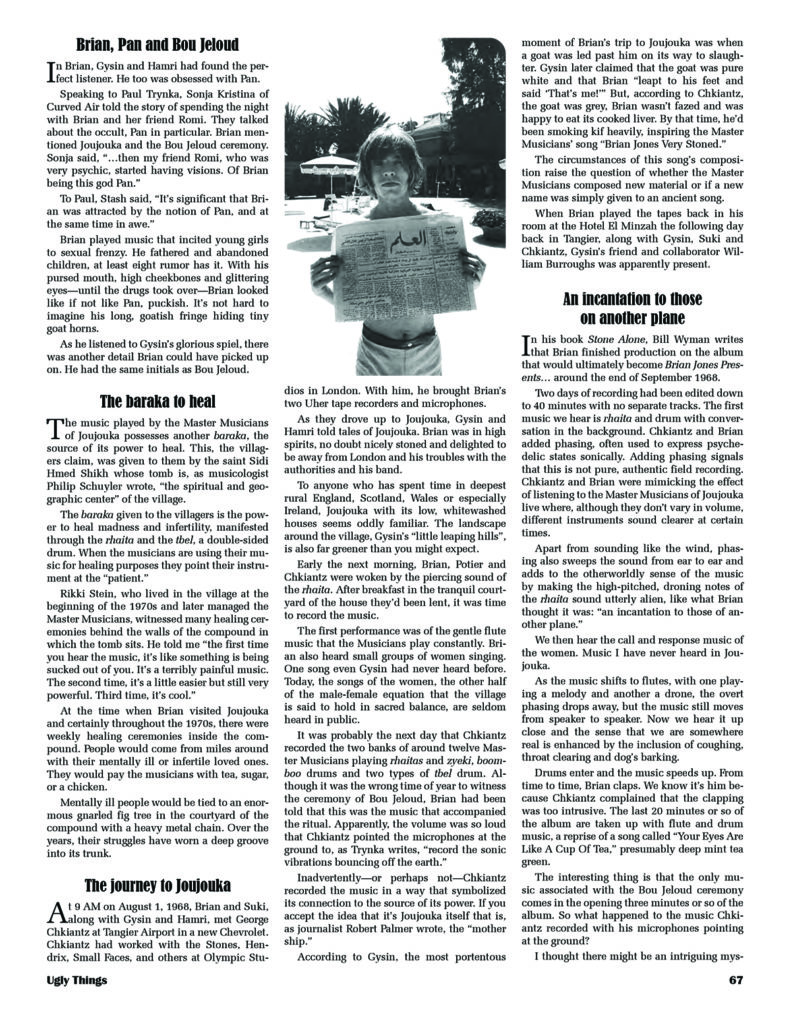
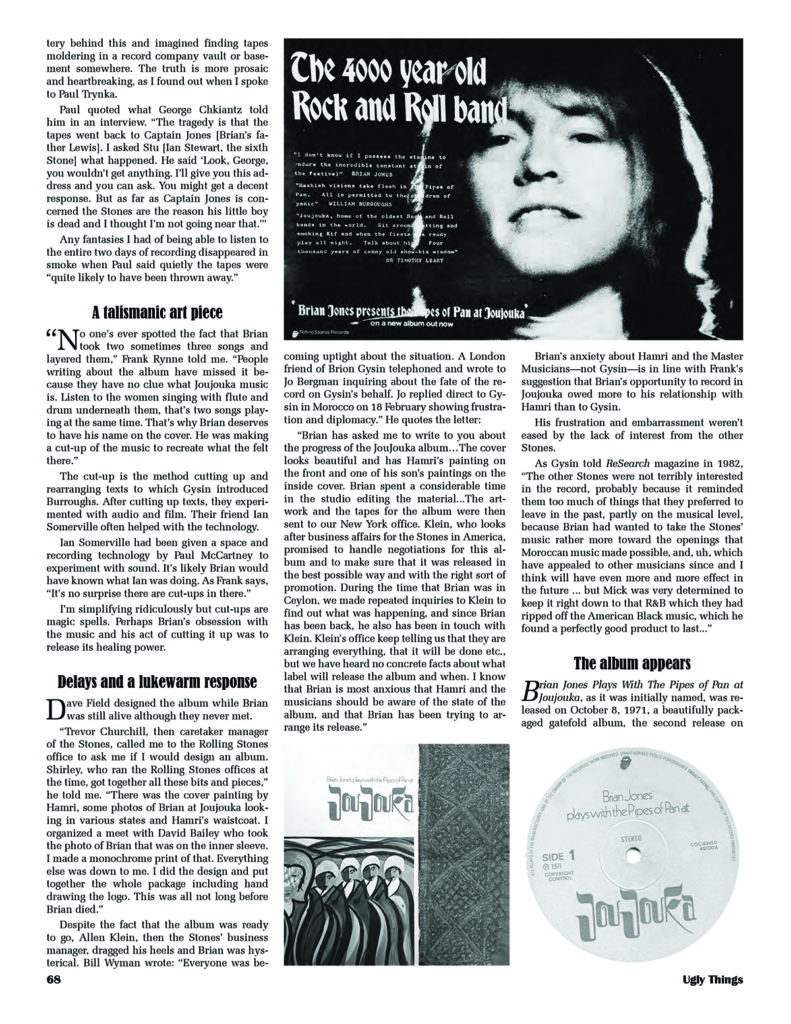
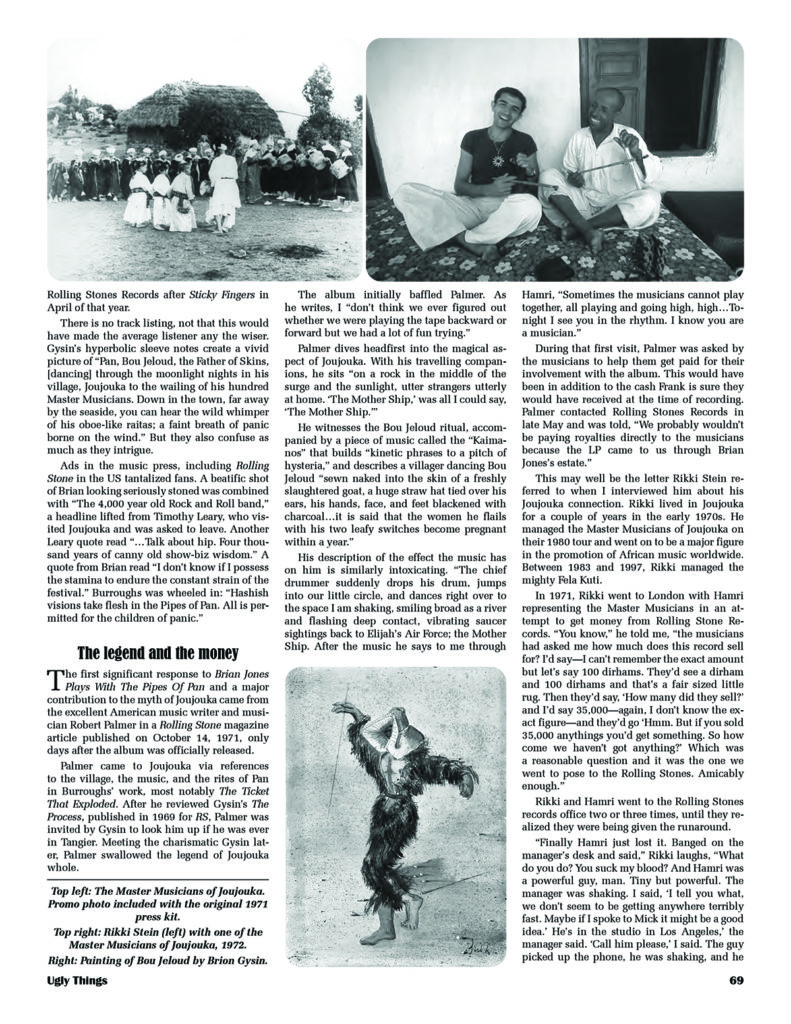
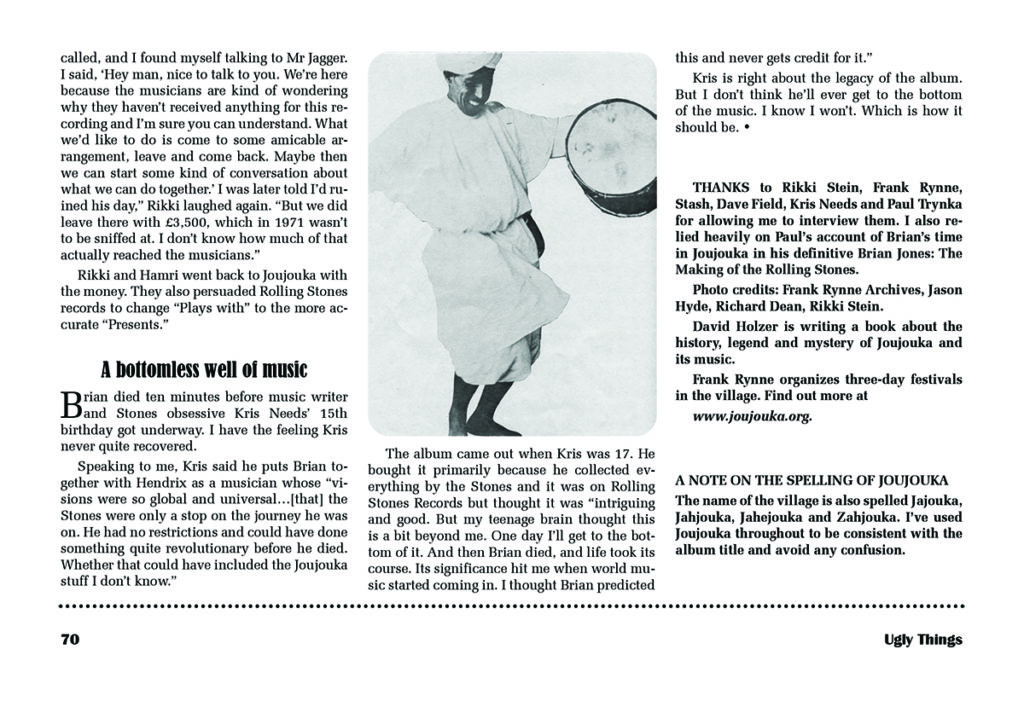
Article reproduced with kind permission from the author David Holzer, and Mike Stax at Ugly Things

Ugly Things #55 is available to order here
